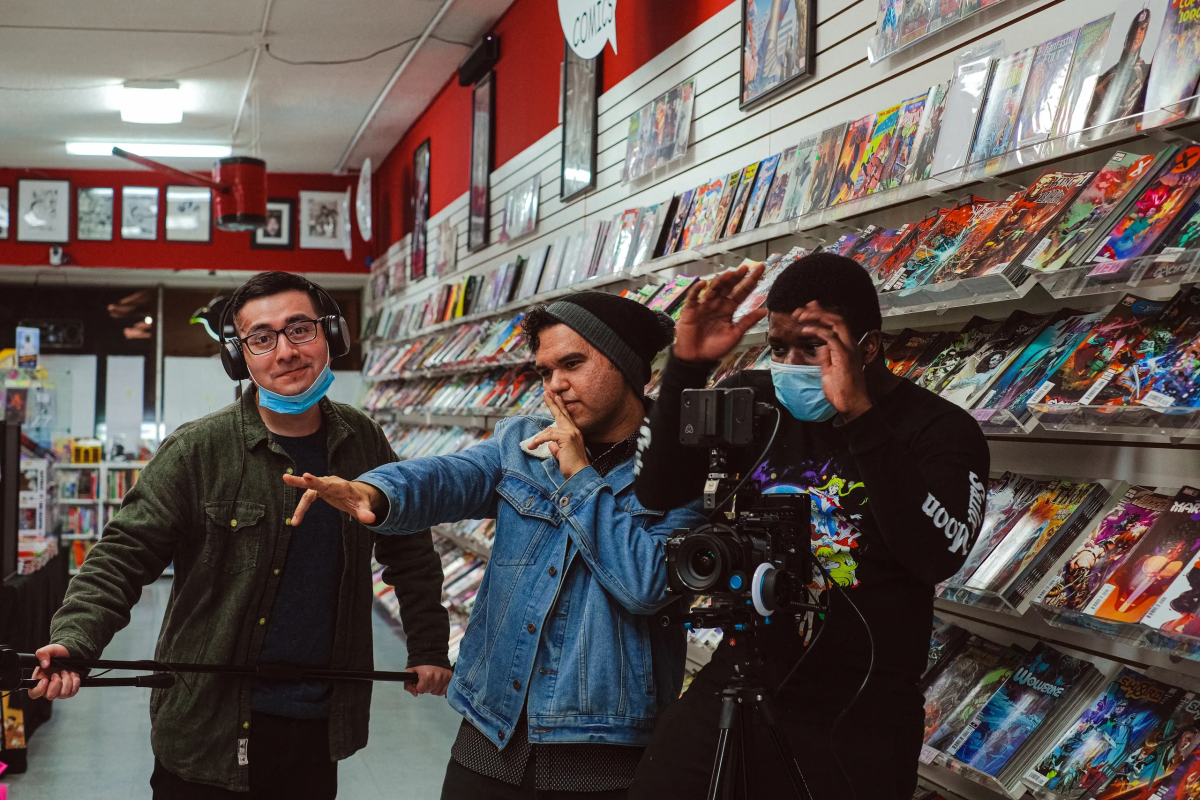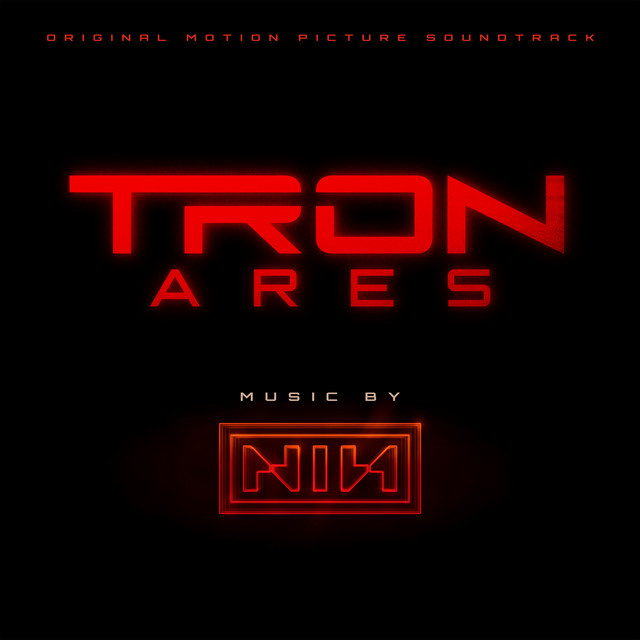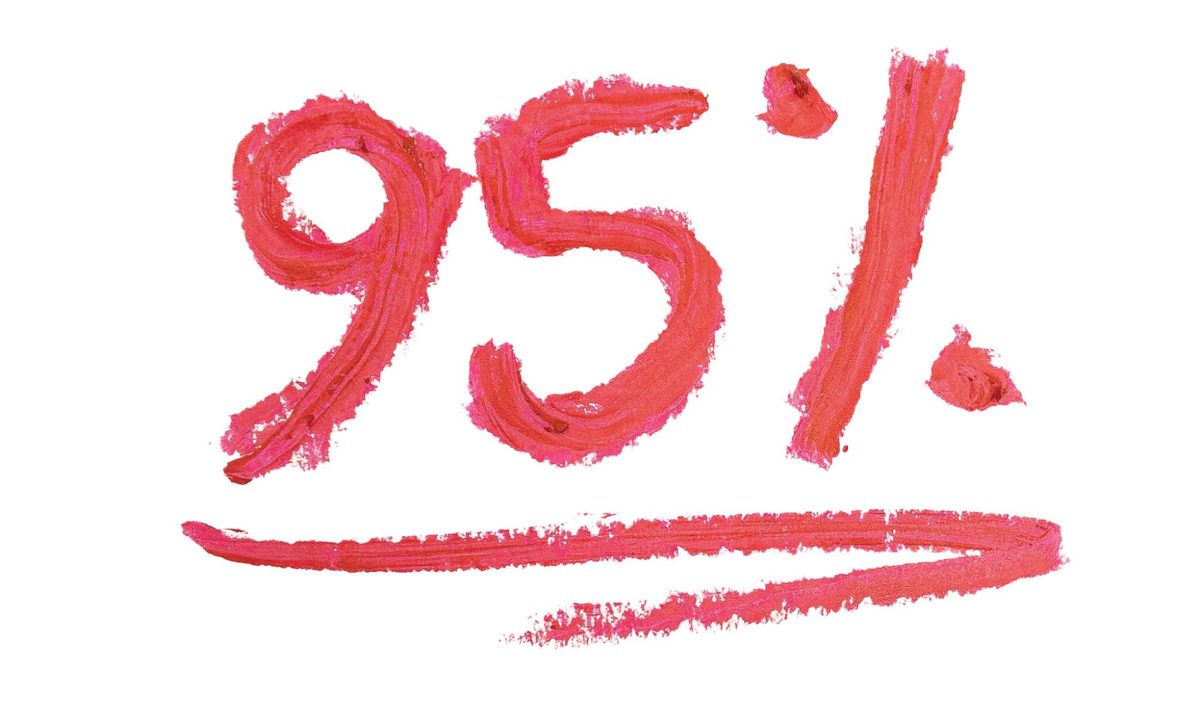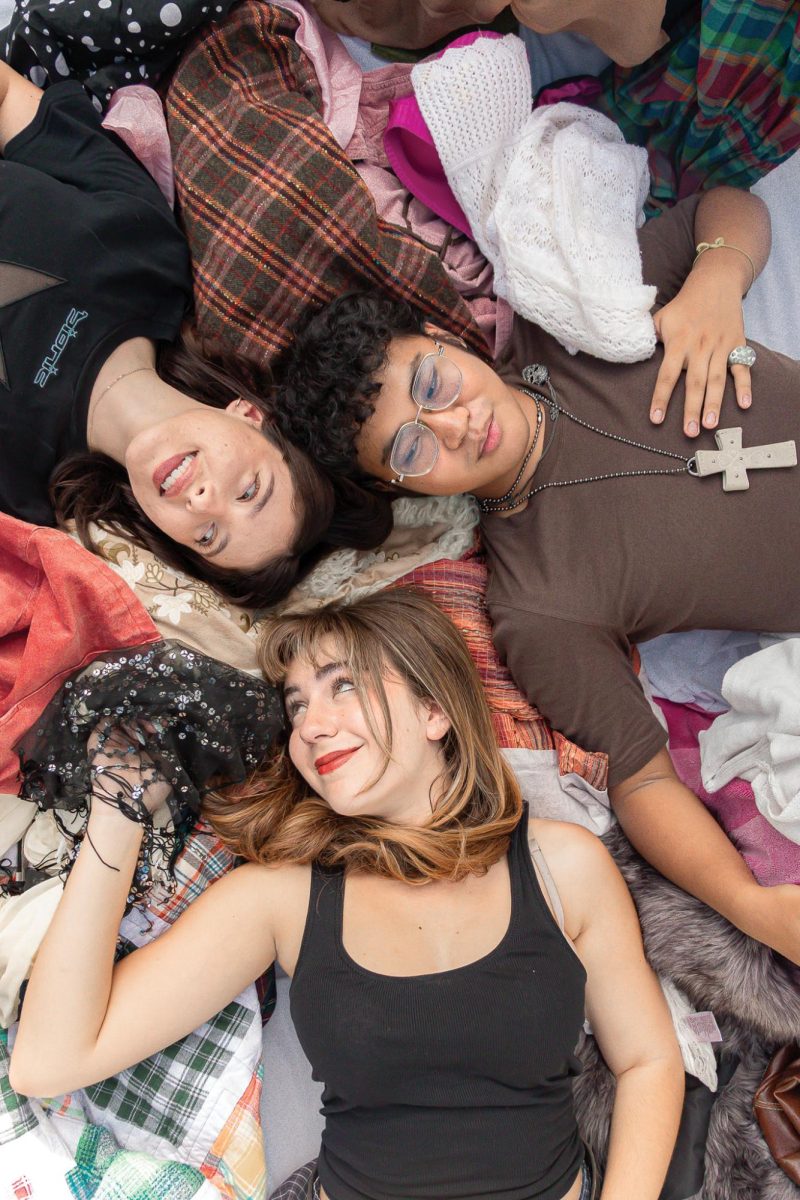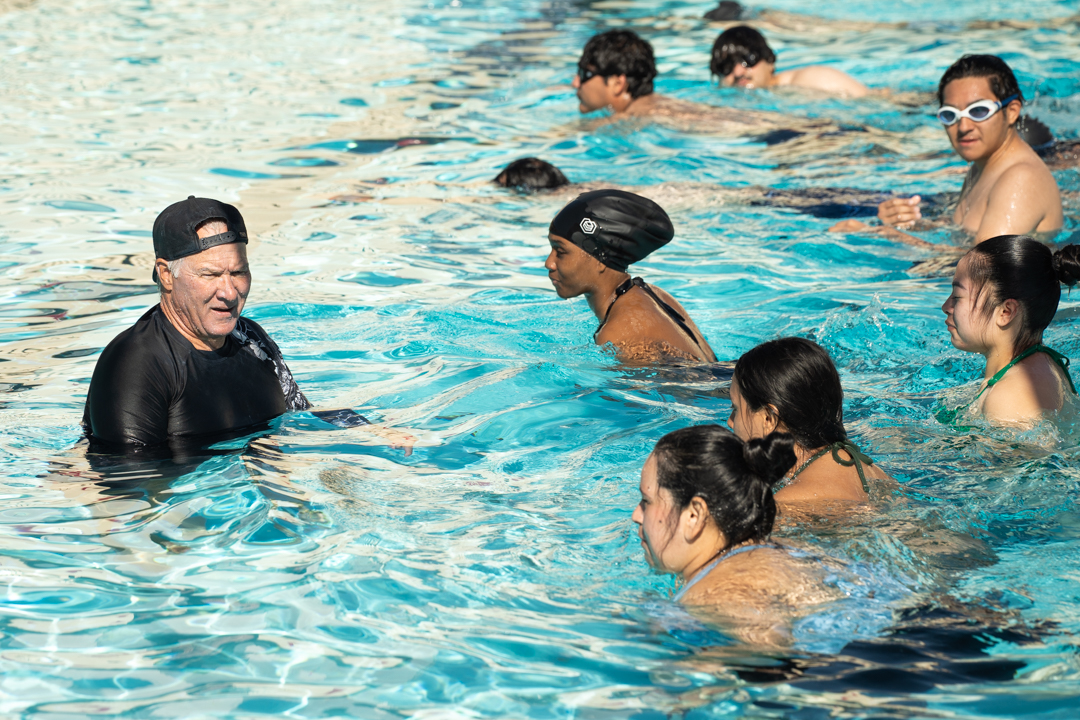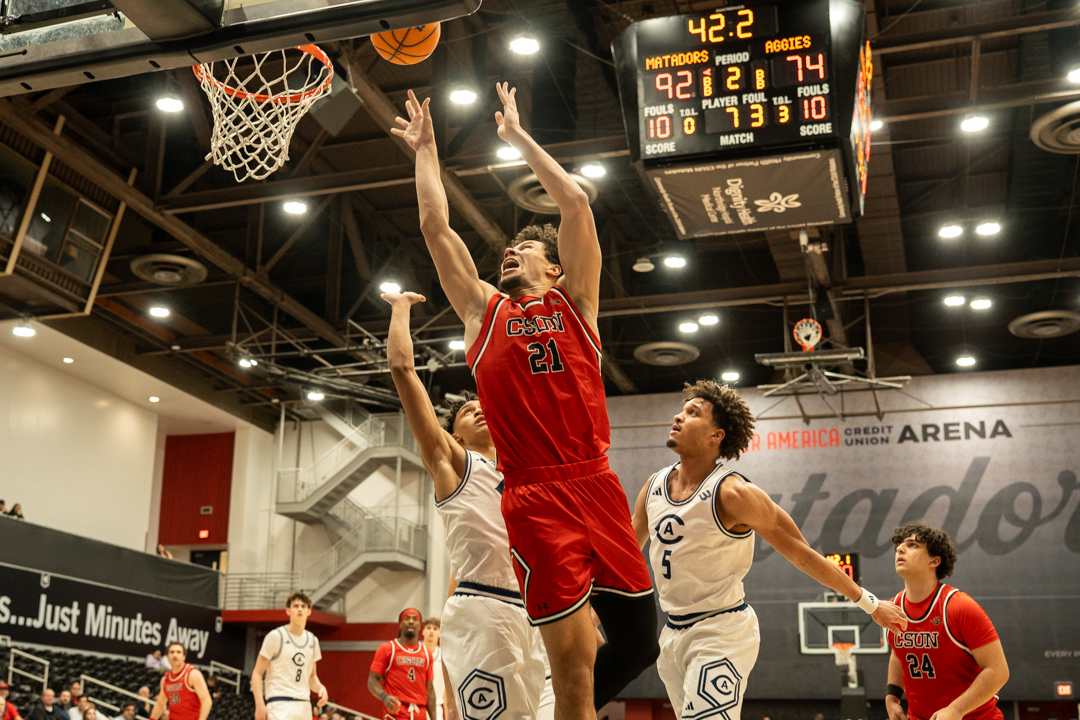A 20-something-year-old trying to figure out who he is. A domineering father figure pushing his son towards a career path he’s unsure of. The son coming into his own and forging his own path in the end.
You can probably think of many movies and shows that follow the same formula.
“The Fall,” a short film written and directed by CSUN student Danny Cano, takes that storytelling recipe and finds a unique way to depict the journey one takes to pursue what they love and being accepted by those around them.
The film won Best Ensemble at the LA Film Awards, a testament to its powerful cast that persevered through challenges like the pandemic to make the film come together.
“I can’t even express what it feels like because it just, that was exactly the award, if any, I wanted to win because that’s what the film is. It’s an ensemble film,” Cano said. “I wanted to create a cool film that everyone remembers these unique characters… For me and for everyone involved, that was the best one because it was an award we could all share.”
“The Fall” tells the story of a 20-something-year-old named Dewey preparing for a boxing match to please his father, who is pressuring him into being a fighter. Dewey, played by Cano, wants to be a painter.
Cano, who also directed the movie, depicted the dilemma his character was facing from one of the first scenes, by having him punch a canvas as he was painting, unsure of who he is. This was his way of depicting the dissonance he was facing between who he was and who his father wanted him to be.
In telling the story, Cano wanted to show that everyone can find joy in their own way. He talked enthusiastically about his dream for the film.
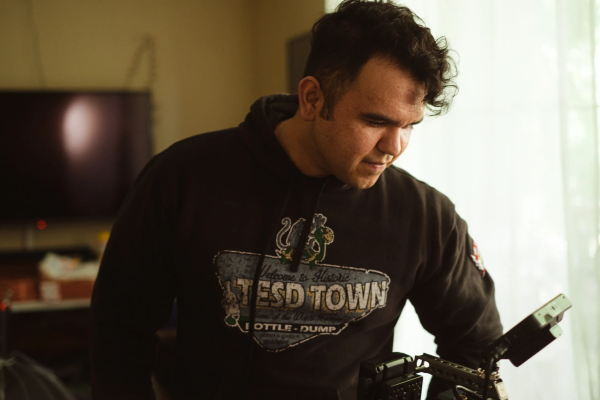
“I always describe it as it’s like a sports film that’s not about sports because I wanted to show that a win for a person doesn’t necessarily have to be this big glitzy media buzz… No, a person can find contentment and happiness in their own peaceful place, which for Dewey was just a simple little art gallery with his friends and people that we saw throughout the film that supported him,” Cano said.
Cano is an entertainment media management student planning to graduate in 2025. His assistant director and co-star, Lucille Gutierrez, who played Dewey’s love interest, Jennifer, also went to CSUN and studied theater.
They both agreed that directing and acting at the same time was a challenge, especially since they had to keep track of such a large cast. The product, Gutierrez said, made the struggle worth it.
“You know, it’s literally like giving birth to a child,” she said. “So it just made me really be appreciative of all the work that goes into it.”
Cano’s story parallels his life. He wanted to be an artist while growing up surrounded by a family of blue-collar workers. His family didn’t always understand his dreams, though they weren’t as intense as Dewey’s father was in the movie.
“My father worked in the police force, so he was still kind of a tough guy, but he wasn’t, like, as abusive as that,” Cano said.
Cano started to seriously pursue his artistic dreams in high school when he began doing theater. Directing came into play at the end of high school, when Cano got involved with HBO’s Young Storytellers Program. That allowed him to learn how to direct, which peaked his interest and got him on the path that led him to make “The Fall.”
His inspiration to direct his own short film came from working with a filmmaker named Victor Aguilar, who cast Cano in a movie in 2020 called “One Day” in East L.A.
“I was like, wow, this is what it takes to make a movie,” Cano said. “…I saw like, really, it just takes a bunch of hardworking people with a couple cameras and some lights and microphones. And I was like, if they can do that and if they got that on Amazon, I was like, maybe we can do a feature film.”
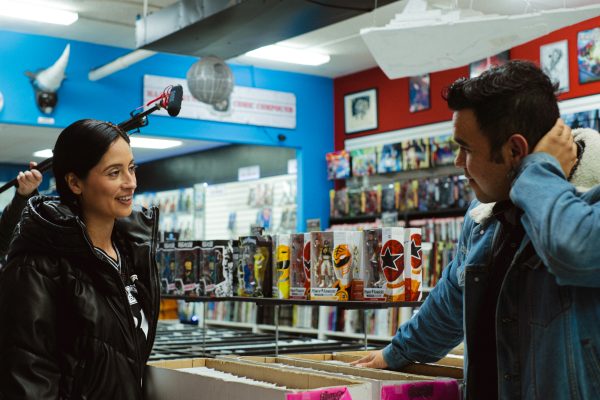
He says he was driven by two things when making this movie. Firstly, he hoped to create characters that break stereotypes, which was his goal with Dewey.
“I wanted to create a character that we never see on camera, which is a Latino male who is multi-layered.”
He says he wants to create a platform for people of all kinds to play a variety of parts without being judged. Secondly, he wanted to make people laugh. He loves the reactions he gets when people watch his film.
“We had a couple come up to us at the screening that we did last December,” Cano said. “…They said ‘We really love the way that you had a very sweet, loving relationship between the male and female presenting protagonists.’”
That’s where Lucille’s character came in. With Jennifer, Danny wanted someone who would love his character for who he is. He told Lucille he wanted her character to be the nurturing friend who sticks with Dewey until the end.
“I told her you’re gonna be the light, you’re gonna be the light in this film that every time you’re on camera, I want people to smile when they see you. I want people to just be drawn to you.”
Gutierrez agreed that that’s how the character should be portrayed, and looked at her character as the person who gives Dewey what he’s never had.
“She thinks he’s talented, she sees this really kind side of him and I think it’s reinforcing for him to be that, you know, someone believes in me,” Gutierrez said. “Someone’s gonna be there for me if I fail, you know, and he’s never had that.”
The film builds up to a fight scene in the end, and Jennifer’s absence in Dewey’s fight was all he needed to embrace his true self.
“When he realized at the fight, the only person he actually cares about isn’t even there, then he kind of realizes, what’s the point of even doing this? What’s the point of going out of my way to win this fight?”
The ironic thing is, according to Gutierrez, Dewey went into the fight because of the fear he had, and Jennifer was the stronger of the two, not showing up for the fight because she knew that’s not who Dewey was.
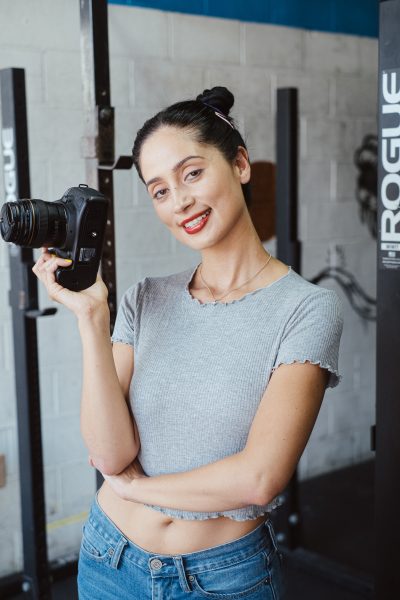
“It seems like he doesn’t have a backbone, you know, because it seems like he took on this fight just and he’s gonna lose, you know, he’s gonna take the hit as a loser,” Gutierrez said. “So it’s like he needs a strong woman but a soft woman.”
Opposite Jennifer was Dewey’s foil in the story, Freddie Esposito, played by Kyle Thomas Schmidt. Esposito faced pressure from his uncle, just like Dewey did from his father. The difference is that Freddie let his rage consume him, whereas Dewey fought against it.
“I always kind of described the film as a tale of two cities,” Cano said. “Like, we’re seeing what happens when toxic masculinity wins. Freddie, he thinks he’s got to be this tough guy, mob boss type, you know, typical gangster-type character… But when he finally kind of sees that everything he wanted, he realizes he’s not truly happy… He’s kind of in tears.”
Freddie wins the fight in the end, but he doesn’t win the fight inside of him. He allowed his anger to overtake him so that he can make his uncle proud and lost himself along the way.
Dewey, on the other hand, lost the fight, but opened an art gallery and became the person he was always meant to be, an artist.
The production of the movie wasn’t always smooth. The team ran into lots of issues in producing the film, namely a small budget and the pandemic.
“We had written the script, we had actors and then boom, all that happened. And so we were like, holy crap. Can we even do this?” Cano said. “…But we just had this feeling inside of us that we’re like, you know what, let’s just try it, and so we just never gave up.”
Cano said the reason the movie was so successful was because everyone bought in and stuck with it through those challenges.
The film was dedicated to Josette Nordman, who played one of the students who graduated from nursing school alongside Jennifer. Nordman passed away because of COVID-19 in 2021, and Cano wanted to make sure he honored her with his movie.
She was engaged to Hauk Heimdallsman, the actor who played Dominic Castiglioni, Freddie’s uncle, in the film. Cano described her as a “bright light” on set and said he was honored to dedicate the film to her.
“I knew that she wanted to be an actress. I knew that that was something she wanted to do,” Cano said. “[Dom] spoke to me about how it just meant a lot to her just to be involved in the film at all. Like, she never really got to be the actress that she wanted to be… And he told me that her family, they were just so grateful that she got to be involved in a film. So it just feels amazing to be able to say that we got to work with somebody like that.”
Cano is not done yet, and he’s toying with the idea of filming a black-and-white sci-fi movie. In the meantime, he will continue to look for a platform on which he can stream “The Fall.” He says he has a distributor in mind.
